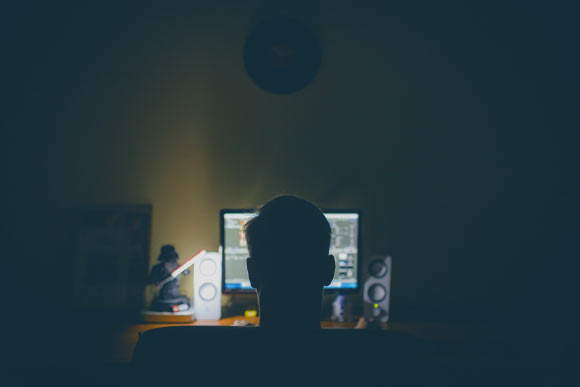A study led by Bocconi University’s Professor Francesco Billari has found that high-speed Internet access causally reduces sleep duration and satisfaction.
There is a growing concern that the widespread use of computers, mobile phones and other digital devices before bedtime disrupts our sleep with detrimental effects on our health and cognitive performance.
Access to high-speed Internet (DSL) promotes excessive electronic media use, which in turn can disturb sleep habits.
However, there is little empirical evidence on the causal relationship between technology use near bedtime and sleep.
In the new study, Professor Billari and his colleagues from Bocconi University and the University of Pittsburgh documented a significant association between playing video games or watching TV in the evening and sleep deprivation among teenagers (aged 13–19) and young adults (aged up to 30).
Among adults of older ages (aged 31–59), they also found that the use of PCs and smartphones in the evening had a strong association with shorter sleep duration.
“Individuals with DSL access tend to sleep 25 minutes less than their counterparts without DSL,” Professor Billari said.
“They are significantly less likely to sleep between 7 and 9 hours, the amount recommended by the scientific community, and are less likely to be satisfied with their sleep.”
“The effect is largely driven by individuals that face time constraints in the morning and by the use of electronic devices in the evening (not by their use throughout the day).”
“Digital temptations may lead to a delay in bedtime, which ultimately decreases sleep duration for individuals who are not able to compensate for later bedtime by waking up later in the morning.”
The findings appear in the Journal of Economic Behavior & Organization.
_____
Francesco C. Billari et al. 2018. Broadband internet, digital temptations, and sleep. Journal of Economic Behavior & Organization 153: 58-76; doi: 10.1016/j.jebo.2018.07.001








